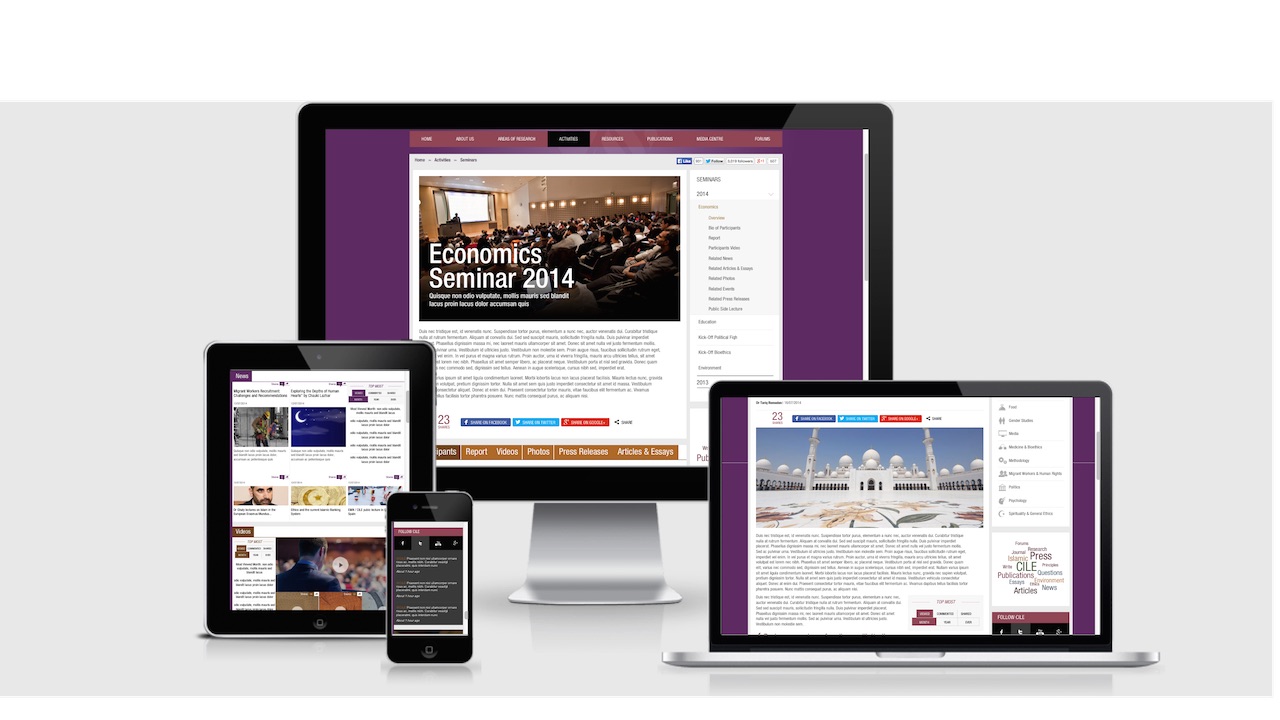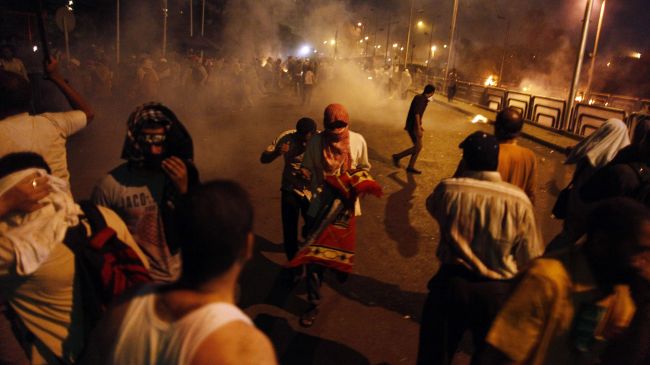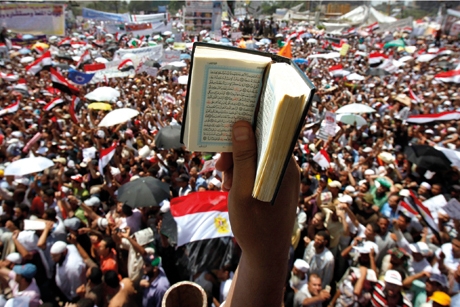We need to re-assess the language we use and the ontological assumptions we make when we speak about the role of the father because often, the problem doesn’t just lie with the crisis but the way we deal with it.
Muslims naturally feel inclined to place the mother at the centre of the process of raising children, unwittingly ignoring the father’s role. Islamic tradition does stress the role of the mother. For example, when asked who a Muslim should love most, the Prophet Muhammad said, “Your mother, your mother, your mother and then your father.” It is also said that paradise lies at the feet of the mother. As a result, we tend to focus on the father as an individual, not as someone who should and can play a central role within his family.
When we assess issues from an Islamic perspective, we categorise everything according to “rights” and “duties”. We speak of the rights of the man, the rights of the woman, the duties of the man, the duties of the woman. This mentality is dangerous. It reduces issues to black and white, right and wrong absolutes. This approach is more prevalent than we realise. We must take from all the human sciences that can deal with family problems.
Another problem in our approach is the idealism. We speak about an idealised past and idealised families which have nothing to do with reality, whether it be now or the history of our ancestors. Muslims must realise we may be Muslims but we live in Western societies and therefore, face the same problems as other families.
There are various reasons why we are facing this crisis of the family.
1.) Immigration
Immigration is a very difficult process because it involves uprooting oneself from a familiar cultural environment and transplanting oneself in a foreign land. Many immigrants fear that if they adapt to their host culture, they will lose their own. This rarely lasts because the peer pressure and constant bombardment of the host culture inevitably has an effect on children. We have to find healthier and more comfortable ways to effectively interact with the dominant culture.
2.) Unemployment
Many Muslim fathers are unemployed. The inability to fulfil the traditional role of bread-winner and protector destroys the self-confidence of a father in a very profound way. This is not just a Muslim problem. In fact, many problems face by European-Muslim families have nothing to do with Islam so why do we remain afraid to search for solutions outside our faith?
What is the way forward?
We need to creatively tap into Islamic values for solutions because that is what Muslim families are most likely to be receptive to. The father is more than just an individual. He can play an important role, far beyond that of just the financial protector. The Prophet Muhammad himself was a role model as a father. When his own daughter would come to him, he would stand up out of respect for her, as people in traditional societies often do. We have forgotten these aspects of the Prophetic example. We are replacing these values with an obsession with enforcing rights and duties. That is what is destroying the spirit of the family.
But what does fatherly authority mean in the Islamic tradition? Is it all about saying yes or no to the actions of your children? Many fathers miss the opportunity to educate their children and accompany them through life. An absentee father spends long hours working or engaged in voluntary community service, at the expense of time with his family. Muslims keep saying the Islamic tradition cares for wholesome family life but Muslims themselves are having a difficult time upholding these values because we have lost our grasp of what it means to be a good Muslim and a good parent.
Fathers have poor relationships with their children. There is lack of dialogue, tenderness and affection. Also, feeling uncomfortable in his social surroundings can add to disengagement at home as he tries to grapple with his insecurities. We need local and dynamic social policies which will counter this problem. For example, in the Mauritan Islands, a scheme is underway whereby fathers are told their children will be taken care of if fathers attend training workshops several times a year.
Muslim families need to share experiences with those who share the same problems. We need to be open and learn from different sources, including non-Muslim ones. We need to take the best from mainstream psychology and social studies and incorporate these into solutions custom-made to help Muslim families. We don’t necessarily have to integrate into society by abandoning our heritage but rather, integrate the positive things we learn from society into our lives.
What we need to do is not to name and shame mosques or families. Don’t look for the guilty people – look for solutions. We need grassroots workers working between families and mosques, people who are rooted in Islam and connected to reality.
Resources on fatherhood: Fatherhood Institute










Nice start to begin talking about muslimmen and revise their role in families and societies. There is enough talking about muslimwomen, while men don´t seem to do much better to me.
salam, men (muslim or not) have a serius work to do on themselves ; They have to start to work as hard as women (jod and kids) and stop thin king about themselves as the providers of the family . its time to speak about sharing the job (kids, house…) the problem is coming from far . I am sorry to say this , but as a teacher who is muslim , i wonder why i never saw in my class kids who had mother with scarf behaving good and work good .why a lot of time, boys dont work inside the class ? And the muslim girl are very good ? How do you want our muslim girl to marry a muslim boy with no education and bad behaviour since he is small? it looks like in France, boys grow with the idea that to exist, they need an ennemy: teacher at school, police or gang and at last, their wife. they dont see kindness as part of men .
Because the girls, although they may not been given much either, at least learn what discipline is. It’s true: there really is a problem with muslimboys. Just letting them free in doing whatever they want, actually it’s just another form of neglect. I can remember not so long ago people used to say: what can go wrong with boys? Well, just about everything that can go wrong, they learned the hard way. The interesting thing is that now, because of the way boys develop, there is a revalutaion of girls in many families. That’s a good thing, but the next step is to think about the way we can get the boys back on track. Getting fathers more involved (first role model for a boy) seems like a good start to me.
Found on the website of Fatherhood Insitute :
« The Institute’s vision is for a society that gives all children a strong and positive relationship with their father and any father-figures; supports both mothers and fathers as earners and carers; and prepares boys and girls for a future shared role in caring for children. »
Le partage des tâches pour le soin aux enfants dans une famille où chaque parent travaille…
Il y aura un long chemin à parcourir, je pense.
Merci d’introduire ce débat nécessaire.
Marie V
THank you Professor Ramadan for your ceaseless efforts to educate muslim citizens in the West. this article of fatherhood in islam is a fantastic article. HOWEVER, the questioin that needs to be critically addressed is how a mulism father can become a role model for his childern becuase one of the problems facing muslim families is the lack of understanding between childern and thier fathers in terms of langauge,mentality etc?
We need to talk about motherhood as well. Muslimmothers may be there physically in the home but in many cases they are not ‘there’, they are not as responsive as you would wish. Motherhood is more than just staying at home. The problem is the women who get children don’t have the schooling to raise kids. Women who are eduacted (mashallah muslimwomen are doing well) don’t marry and get children.
small Typo, please correct it.
Quote « in the Mauritan Islands » ==> Mauritian (pertaining to Mauritius).
Exceptional insights and may Allah (swt) reward you ten fold for all your contributions. I strongly believe the issue of absent fathers is the single contributor to many of the social ills among our muslim households. The problem will get worst, particularly for those of us living in the west unless we change our ways of dealing or looking at the issue. I think more evidenced based research on this subject might be helpful to drive the message home. Keep up the good work and I look forward to reading more on this very crucial subject.